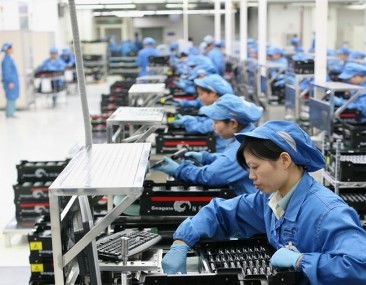A comprehensive development program for the country’s manufacturing sector has been approved by the State Council, which is expected to bring 10 targeted industries to a new level of development, the Economic Observer reported.
Wang Liming, chief engineer of the Ministry of Industrial and Information Technology (MIIT), said on April 28 that the program, titled "Made in China 2025," will bring challenges to many manufacturing industries, including the most traditional ones.
The report said that the government will help transform and upgrade industries, including the information technology sector and those that produce high-end computer numerical control machine tools and robots, marine engineering gear and ships, and aerospace equipment.
The report added that industries engaged in producing advanced rail transit equipment, energy-saving automobiles, biopharmaceuticals, electricity equipment, high-performance medical equipment, and farming machinery are also included in the list.
MIIT officials said that the targeted industries will receive the ministry's financial support to help them pursue their company reforms and technical upgrades.
According to the officials, the "Made in China 2025 Planning Guideline" contains a solid middle- and long-term strategy for the country's industrial development, in which the intelligent manufacturing systems will serve as the starting point of implementation of the program.
The report said that the new development project was proposed as the country's manufacturing sector has declined recently, plagued by over-production and doubled investment.
MIIT data has shown that the country's production of automobiles, cement, chemical fibers, raw steel, power-generating equipment, mobile phones and computers account for more than 50 percent of the world's total amount in 2014. An MIIT official, however, said that over-production will become more common and China's industrial growth will stay at 7 to 8 percent in the future.
Wang noted that the country's industrial production has slowed down, as raw material producers have experienced a production surplus, causing a drop in the general output year-on-year.
"We need to work harder to maintain stable development of the industry and the economy, " Wang remarked.



























